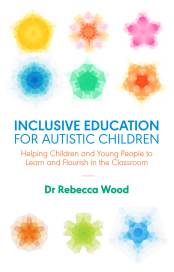Education is one of those topics we all feel ourselves to be an expert on. Most of us went to school, and many of us have kids who go to school, or did so in the past. And with the school workforce comprising about one million people in England alone, many of us work in schools too.
So it’s hardly surprising that in the current circumstances – pandemic raging fuelled by governmental incompetence – that the collective opinion-forming on education is reaching its zenith. But as so often, in happy times and times of crisis, children with special educational needs and disabilities (SEND) are either forgotten about, added as an afterthought, or nudged out of the debate altogether.
It’s difficult to describe the arrangements for schooling since the first lockdown as anything other than a perfect storm of poor planning, a lack of vision and a failure to grasp core principles. So many U-turns, it really is quite dizzying, resulting in the ultimate absurdity of many primary school children swarming into schools for one day at the start of term in January 2021, only to be told they must stay at home for the rest of the month at least. But just as children who attend special schools did not even merit a mention the first time it was announced schools were to be closed in March 2019, the approach for the third lockdown has resulted in them being squeezed out of the narrative, yet again.
To be fair, I think the government has tried to head off the issue this time, by using the contested category of ‘vulnerable‘, which includes children with an Education, Health and Care Plan, to indicate who should continue to attend school. It was also supposed to be the case during the first lockdown that a good number of children with SEND should still go to school. But the reality last time and this, anecdotally anyway, is that at least some parents of children with SEND are told that their child can’t attend due to staff shortages or an inability to create a safe environment. And even with the provision of coronavirus testing in schools, which should create a degree of increased safety for all, with no arrangements to test ancillary staff such as drivers (many children with SEND rely on specialist transport to be able to attend school) and visiting professionals, welfare is inevitably compromised. This can mean that parents of children with SEND who have health conditions, or those with family members who do, feel unable to take advantage of a school place, even when it is offered.
The first lockdown resulted in a wave of well-intentioned, but often exclusionary, initiatives and resources for parents home-educating their kids. Celebs stepped up to the plate, and the BBC increased its educational output. Sadly, few of these materials were accessible for disabled kids, especially teens, and the narrative – that it was all a bit of a jolly jape for parents who had never home-educated before – was irksome for those parents of kids with SEND already doing this for years. Yes – news flash – parents of disabled children often find themselves teaching their kids at home, either through various forms of school exclusion, or the inability to secure funding for a setting that works for their child. So all the issues that accompany school closures – difficulties in working, exhaustion, lack of opportunities for children, limited resources and general tedium – have been impacting on parents with SEND for many years.
Which brings me to the subject of school exams, hotly debated as many kids understandably worry about how they will get their GCSEs and A Levels. As it happens, I, along with my co-author Professor Francesca Happé, recently had an article published on access to school tests and exams for autistic children*. Written in pre-Covid times, it shows how the autistic children in my study might not even do school exams, and if they did, they weren’t always provided with the access arrangements to which they were potentially entitled. Subject to certain conditions, access arrangements can include taking an exam at home, for example. Many of my participants – school staff, parents of autistic children, autistic adults – also felt that teacher assessment would be a fairer way of evaluating the skills of autistic kids, an option usually only available for the very youngest children in schools. So it’s interesting to see these discussions taking place now, when children with SEND have arguably needed these accommodations and considerations for decades, as still too many leave school with no qualifications at all.
For this new lockdown, the government has lowered the bar on which children can attend school, particularly those whose parent/s or carer/s work in a critical sector. This has meant more children attending school than during previous school closures, raising fears that this will do little to curb the current exceptionally high levels of coronavirus infections. I can completely understand these concerns, but yet again it means that the focus has moved away from families whose children genuinely need extra support and consideration, as the narrative swirls around the concept of exploitative parents who care little about infection control and the pressures on schools.
The simple fact is that many of the issues impacting on school kids and their families have always been endured by children with SEND and their parents and carers. Access to a suitable education is a right they are too often denied, and parents must often give up careers and financial stability to support and educate them at home. They do this often with limited resources and patchy access to external processes that would enable their children to gain qualifications. So as we all navigate our way through these incredibly difficult times, and the collective opinion-forming on education continues to rage, don’t forget that at least some aspects of ‘the new normal’ have been the norm for some parents well before the Covid era. If children with SEND are yet again squeezed out of the narrative, then it’s time to stand back and do a little privilege-checking.
*For an authors’ accepted version of the article, please email rwood@uel.ac.uk. Online summaries can be found here and here.

